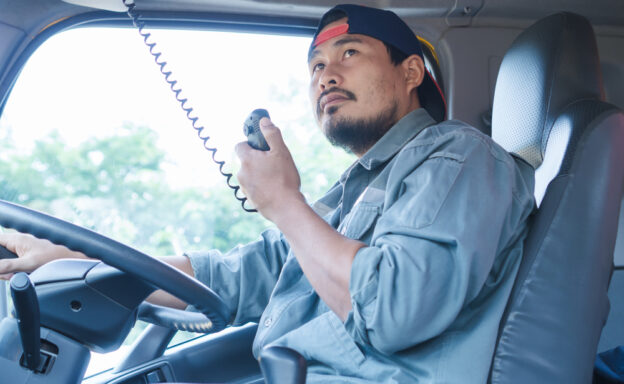Trucking remains a vital industry in the modern world. Trucking companies transport over 72% of all goods across the United States, and that number is expected to increase in the coming decade. When done well, a trucking company can be a lucrative business venture that’s in high demand. In general, you should plan to invest $100,000 to $200,000 at a minimum to start a trucking company, and those costs can increase based on the size of your operation, the number of employees you intend to hire, and the number of trucks you wish to own. Rather than asking, “How much does it cost to start a trucking company?” and looking for a flat figure, a better strategy to understand these costs is to look at the various costs you will need to cover to launch and run a freight or tucking occupancy. At Advanced Commercial Capital, we work with trucking and freight companies of all sizes, and we understand the industry well. Here is a breakdown of the different costs of a trucking company that you would need to factor into your plans.
Investment Breakdown
Starting your own trucking company comes with a variety of costs. Whether you start with one truck or 10, there are specific costs that you have to tackle to launch your business. Here is a general breakdown of the things you will need and their initial investments:
• CDL – Your commercial driver’s license is a necessity, and these costs vary from state to state, as does the cost of taking the CDL training course. Plan several thousand dollars for this expense.
• Truck and Trailer – To start your own trucking company, you must purchase a truck and trailer. The age, size, and type will all impact the cost. This cost can be as low as $15,000 and as high as $150,000 for just the truck and an additional $30,000 to $50,000 for the trailer.
• Insurance – Commercial trucking insurance can be as much as $12,000 to $18,000 a year per truck.
• USDOT and Motor Carrier Numbers – To operate legally, you must have an MC and USDOT number. The total cost is $300 per operating authority
• Business Entity – For your protection, you will want to set up an official business entity, such as a Limited Liability Company or S-Corp. The cost for this varies by state but is usually less than $2,000 for a simple business structure.
• Electronic Logging Device – Finally, you’ll need to invest in an ELD system to ensure your drivers remain compliant with hours on duty regulations. There are only a handful of exceptions to ELD regulations, so plan to invest in one of these systems at the launch of your business. These can cost as much as $950 per year to operate.
Before you can launch your business, you will need to have all of these costs covered, and our financing options can help.
Operation and Overhead Costs
Once the business is up and running, there are additional operation and overhead costs you’ll need to account for as you work to bring in income. Advanced Commercial Capital can help you account for the following:
1. Driver Salaries
Unless you are going to be an owner/operator, you will need to hire drivers to drive your trucks. Expect to pay a salary and mileage of around $70,000 a year to attract and retain reliable drivers. You may also choose to pay mileage in addition to a base salary, and a standard of 40 cents per mile is common.
2. Fuel and Tolls
Fuel is another cost you must account for once you’re up and running. You should expect about 6 miles for every gallon of fuel in your semi-truck, and the actual cost of fuel will depend on the current prices at the pump. Similarly, you will need to invest in EZ Pass to cover tolls for your drivers.
3. Technology
Many trucking companies find technology is essential to their operations. Advanced mathematics systems can help you keep your trucks on the road more accurately, and automated routing and dispatch systems will help improve the efficiency of your business. All of these systems cost something to operate.
4. Business Overhead Costs
Finally, a trucking company is, at its heart, a business. This means you will have costs for marketing, keeping up an office, invoicing your clients, creating rate confirmation and freight contract documents, organizing notice of assignment documents, and tracking payments, similar to any business. It can cost around $5,000 to start and run your initial marketing campaigns, and you will also need to account for other office-based expenses. In trucking, these operational costs include dispatch, which many new companies outsource, so plan on dispatch fees of around 5 to 10% per load.
Navigating Regulatory and Compliance Fees
The trucking industry is quite heavily regulated due to the serious nature of accidents involving semi-trucks. Here are some of the compliance and regulatory costs you’ll have to cover:
• BOC-3 Form – If you’re doing interstate business, you will need to have a BOC-3 Form, which shows you can operate legally in your various states. This costs between $20 and $40.
• International Registration Plan Credentials – The International Registration Plan Credential is also required if you cross state lines. The IRP averages about $1,700 a year, but these plates can cost between $500 and $3,000 per truck.
• International Fuel Tax Agreement Decal – Yet another regulation required for crossing state lines, the IFTA costs about $10 a year.
• Heavy Highway Vehicle Use Tax – The HVUT is applied to all trucks weighing over 55,000 pounds. It runs between $100 and $550 a year. You will also need to pay business income taxes each year.
• Unified Carrier Registration – The UCR for up to two trucks is $69, but for three to five vehicles, it is $206. Larger trucking companies will need to spend even more.
Choosing the Right Financing Strategy
The costs to start a trucking company do vary from one to the next. The right financing strategy starts with the right finance company that understands the intricacies of running a trucking company. Advanced Commercial Capital works with trucking and freight companies, offering factoring, freight capital, and cash flow solutions tailored to the trucking industry. We help our clients finance their startup costs, avoid financial pitfalls, such as scams and double brokering, and create a financial plan that will work for the long term. Transportation financing is all we do, so we are well-positioned to help you launch your trucking company and keep it running through factoring or lines of credit that will keep the cash flow in play as you need it. To learn more about the costs of starting a trucking company, reach out to our team today.


